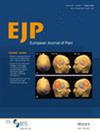Chronic pain represents a major global healthcare crisis, and current treatments are limited in effectiveness and safety. Emotional freedom techniques (EFTs) show promise as a potential psychological treatment.
The current study investigated the effect of a randomized clinical trial of EFT for chronic pain in a sample of 147 adult chronic pain sufferers (89.9% female; mean 54.63 years). Participants engaged in a 6-week EFT programme (either online self-paced or in-person).
The per-protocol analysis indicated pain severity and interference scores were significantly lower at the end of treatment for the EFT group compared to waitlist, and these were sustained at follow-up. There were no differences between the in-person or self-paced programmes at follow-up for pain severity and interference. Somatic symptoms were significantly lower after EFT, although no further differences at follow-up. Quality of life scores were significantly higher after EFT, which were sustained at follow-up, and no differences between two styles of programme. No significant effects were found for anxiety, depression, happiness or satisfaction with life across the 6-week programmes for either style of delivery or at follow-up. These are discussed in terms of clinical score meanings. Intent-to-treat analysis was consistent with the per-protocol analyses. Limitations of the study are identified and future directions are discussed.
Findings offer early promise for EFT as a potentially effective pain management strategy, as well as support for online intervention without compromising treatment outcomes.
An emerging body-based intervention for chronic pain may be a possible solution for remote clients who cannot attend in-person sessions. In this clinical trial Emotional Freedom Techniques (EFT) significantly reduced chronic pain severity and interference, and there were no differences between and online self-paced program toan online in-person EFT intervention. Both were equally effective, also enhancing quality of life without compromising outcomes. The results were significant at 6-month follow-up/. These findings highlight a body-based approach as a promising, accessible pain management strategy, and highlights that online programs may be part of the solution for chronic pain patients.


